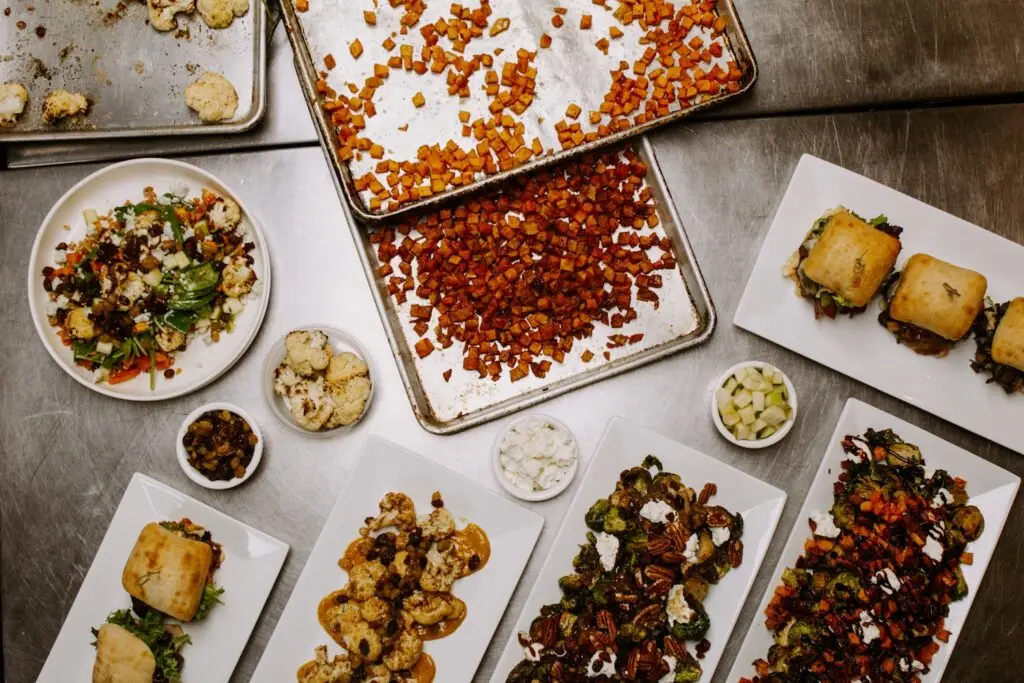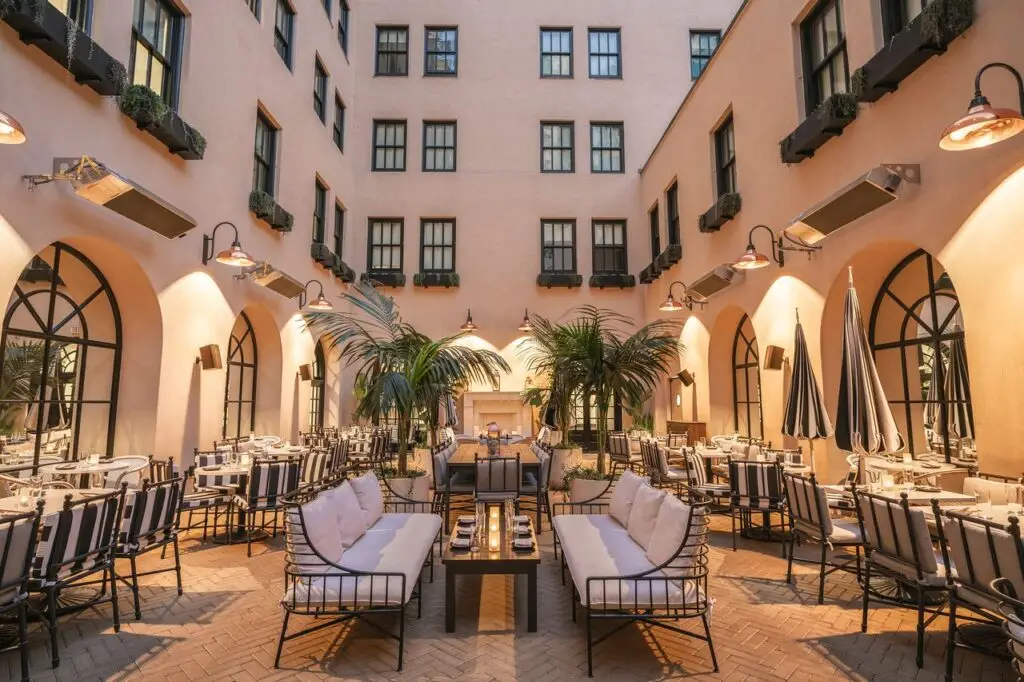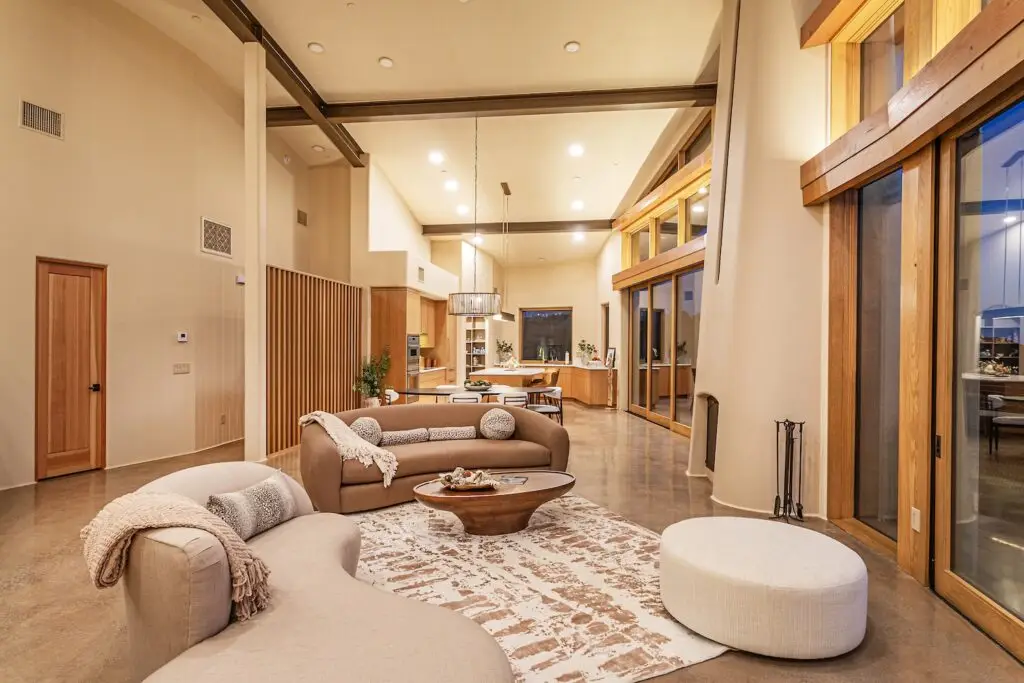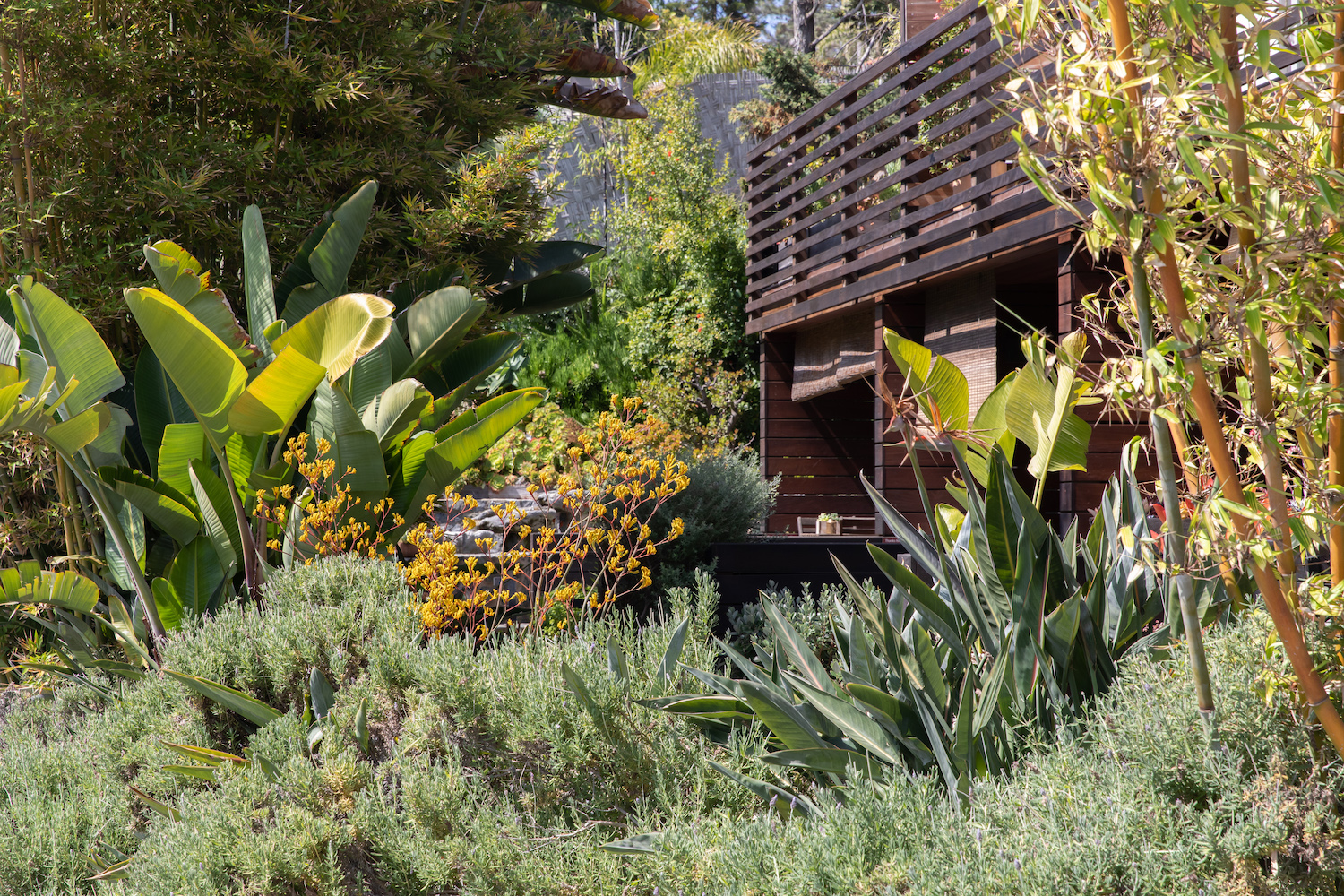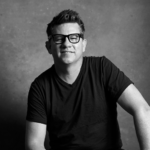The beekeeper’s van is blocking my enlightenment. I’m trying to pull up the tiny driveway of the Inn at Moonlight Beach, which is steep and full of ulcers. I’m driving my wife’s car, a sheepishly adorable white convertible VW Bug (she’s from New York and hadn’t driven in a decade when I convinced her to move out here, and, if she was going live in California, she was damn sure going to have a white convertible that smelled like suntan lotion and subway emancipation).
Even with this sexy, tiny turtle car, this driveway is harrowing. If I hit the gas wrong, I’m going to take out the very lush porch, dismantling wide swaths of zen. If I have a mishap with the clutch, I’m sure to plow through the micro-farm stand (located halfway up the driveway, on the right).
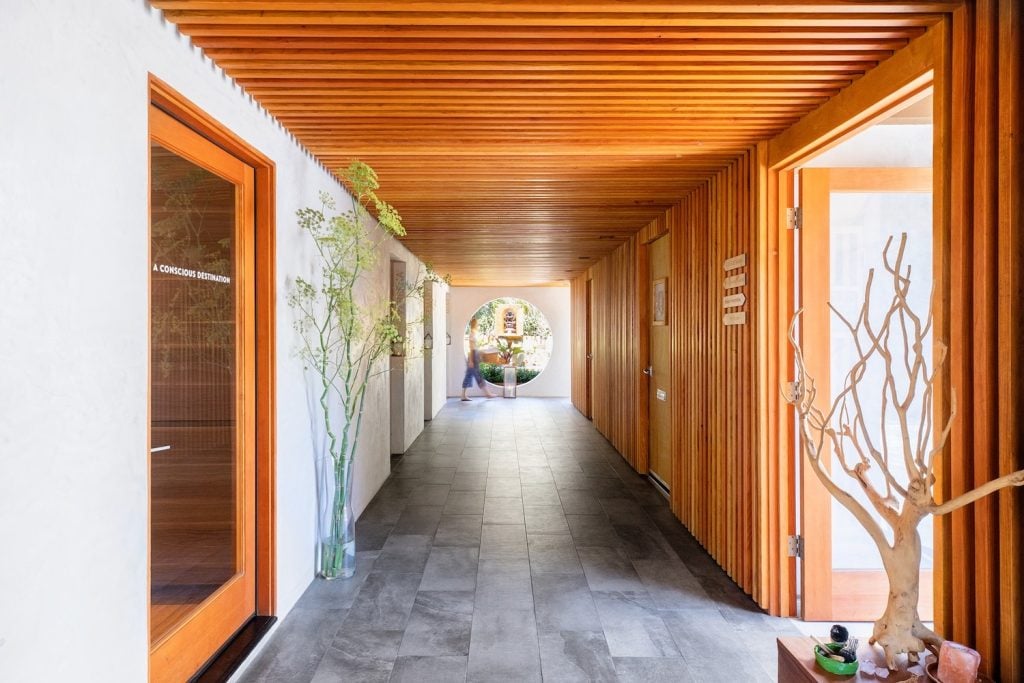
I’m not sure what I expected of an “inn.” Not sure I’ve pondered what that word means since I was a young kid reading about the Jerry Springer-y birth Mary and Joseph experienced. Many lodging facilities across the US call themselves “inns” to portray a warm provincialism, to appeal to the traveling-aunt in us all. And then you get there and it’s just, like, a huge industrial dormitory with an Olde English–looking logo and weapons-grade carpet.
This place, though, is what I think an inn should be. A home, fascinatingly transformed into a snug alcove for weary life travelers.
It is the first platinum WELL-certified hotel in the world. The WELL certification is kinda like organic food certification—but, whereas organic means that food was grown without pesticides and is expensive, WELL-certified denotes places where a shocking amount of things about the property are designed for human health and wellness.

Like this hedge of rosemary and lavender and a dozen other herbs lining the front of the property, used in tea and in your bath to create a sort of human potpourri. Or the succulent table (tiny, engorged, dinosaur-looking plants on a wooden bench, which guests can mix and match for their own parting gift of water-wise puffy plants). And the bug motel, a box of circular wooden tubes for them to rest their weary pollinating mandibles.
Insects are four-star guests here (but, it should be noted, they seem to not bother, maybe dissuaded by the essential oils and incense near the small altar of the owner’s guru, or maybe because they’ve got their own little inn of their own).
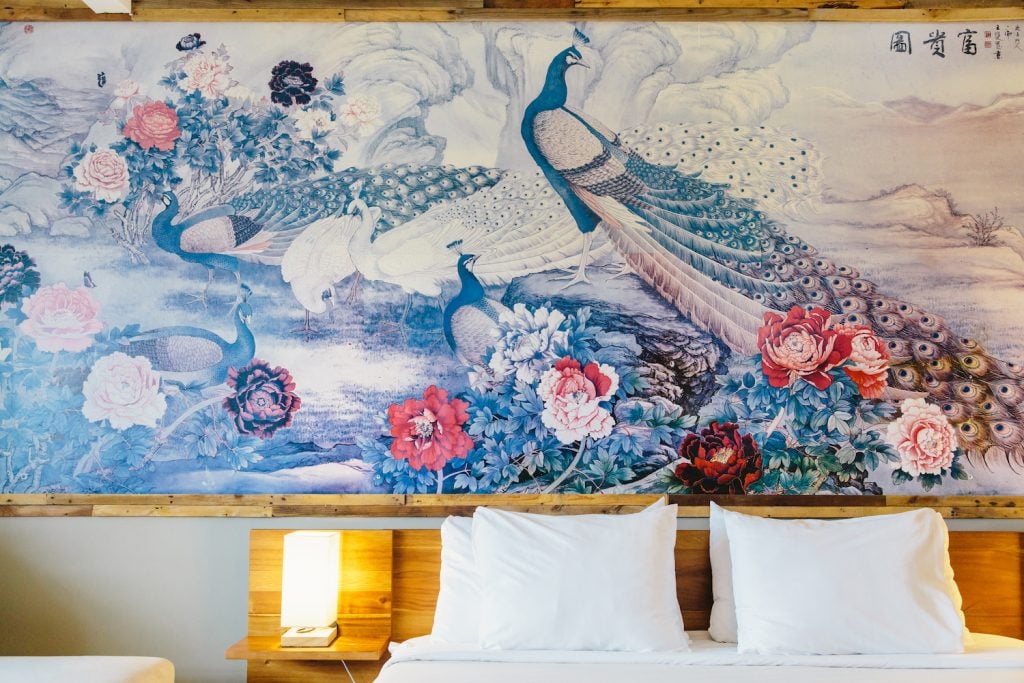
The whole property—basically a very large home a few blocks from the beach in Encinitas, turned into a wellness sanctuary—is a living, breathing thing. A home surrounded and hugged by a micro-farm. A farmer walks among the vines and shrubs and trees, pruning this and that. He’s thin, angular. He looks very plant-based, bearded as is written in farmer rules, his personality soft and amiable because he looks at plants all day instead of his damn phone. He is so calm and present that, just encountering him, you wonder if your own damn phone has zip-driven your soul.
When Shangwen Chiu Kennedy and her husband first bought this place in 2017, it was a pretty humble bed-and-breakfast—less “old” than just kind of existing. The dirt was that love-thirsty, latte-brown dust, a sort of Yuma hard pack, like the basepaths of abandoned Little League fields. In Shangwen’s vision of a wellness inn, she had to first bring life back to the earth. She dug it all up and piled it in the driveway, a giant heap of ground rehab, and started feeding it compost to it every day, covering it with a tarp.
If you pulled back the tarp and felt the black soil, she says, it was warm, almost hot—the exothermic effect of a billion-trillion micro-organisms building a society of nutrients. She eventually dispersed that supersoil and planted her little inn-farm that the Farmer of Calm patiently fusses with. She digs her finger in the dirt and picks a tiny purple carrot, the size of a baby thumb. Then, a strawberry off the vine. We walk through the noren and into the “lobby” of the inn, where she washes the fruit and places it on a tiny compostable bamboo tray.
The idea of all this, Shangwen explains, is that the warm earth and biodynamically grown organic food-plants and shrubs are exuding an oxygen and life force around the whole property. Nutrients vaporized (she didn’t say that unscientific gibberish; this is me imagining) so that you’re sleeping in the invisible lukewarm life steam of a giant naturalist diffuser. Farm bathing.
Shangwen’s a force. Two degrees from Cornell and Harvard in architecture, landscape, and urban design. She was on partner track at famed architecture firm NBBJ with her mentor, Alex Krieger (an Obama appointee). Together, they rebuilt the Shanghai waterfront (she’d done her thesis on it). She helped build one of the most famous waterfronts in the world—the Bund—before realizing she wanted to slow down and create things like this in San Diego.
In the main room, a couple of employees slowly, methodically do the work of the inn. They arrange cutting boards of fruits, dates, nuts, and raw honey from the local Mikolich family. They steep various teas using herbs grown all around the building. They take freshly picked lavender and other herbs and dip them into honey in jars, then seal them up and let them infuse along the west-facing windows. They dehydrate fruits. They teach classes on how to do all this stuff for guests who are interested.
There are various nuts you can crack. Dehydrated apples, things picked.
I’m here because my wife and CEO Claire has given me a day off. We took over San Diego Magazine almost two years ago. Our son was born the same week. Timing could have been better, things spaced out a bit. Should you ever consider doing those two things concurrently, know that I learned something important.
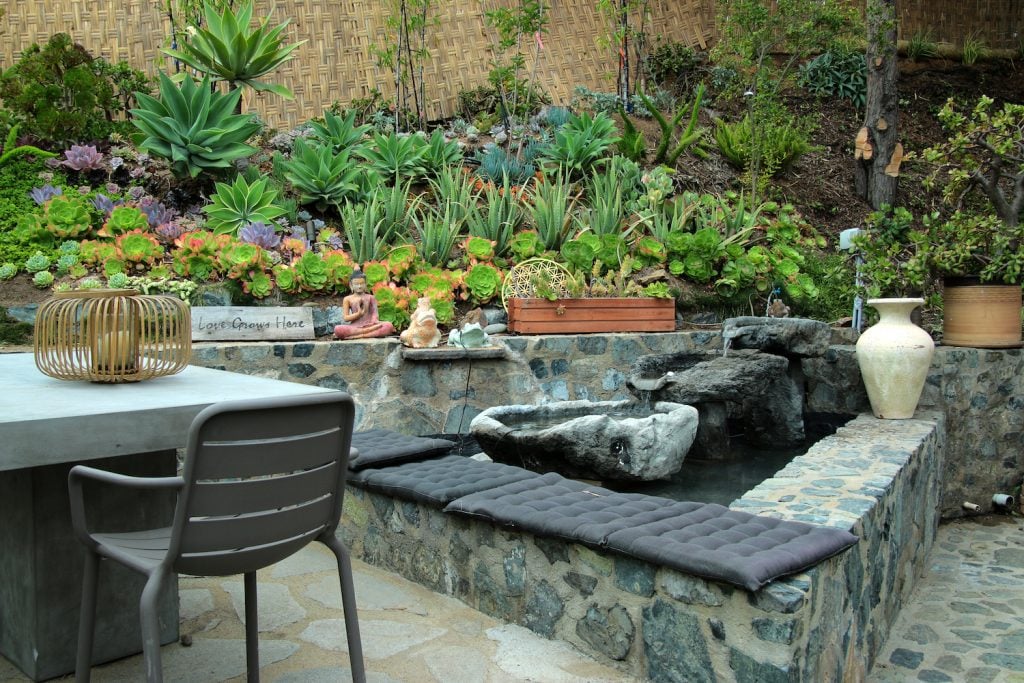
Before making two seismic decisions at the same time, it’s important to identify the environment in which you’re about to make the decisions and then remove yourself. Preferably you should go to a different country and culture, and, once you land, break all of your legs and drink from fountains to try to contract amnesia from the local water supply. Just do everything you can to really trap yourself there.
It has been the most fulfilling way to rapidly age. Once we had finally built our phenomenal team at SDM (the best creatives I’ve ever been around, the ones who can embarrass you with their intelligence), once we could take our own feet off the pedal for a second and sit under a tree or lower ourselves into a boat drink… we decided to launch the biggest food and wine festival we could possibly imagine, tripling our work. And a month ago, that festival, scary as hell, like extending your neck under the trellis of life’s guillotine, happened. And it was far more glorious than we ever could have imagined.
The point is, SDM Media is healthy, growing. This dream with more than its fair share of doubters, with two years of bone-grinding work and plans gone right and wrong, of staring at wild content ideas and P&Ls past midnights, all the blueprinting and filming and writing and editing and storytelling and hiring and pleading to various supernatural forces who might somehow aid us in navigating the modern media world… it’s now a mighty little organism. The soil of our creative house is warm and teeming, giving off a constant stream of ideas about a city, a people, a life, a culture.
And Claire said, “Go.” No dog, no children, no cooking, no dishes, no work, no alarm. Take a single day.

And so I take my Inn at Moonlight Beach key—a real key, with some round ornate keychain whose shape I’m sure is a symbol for some aligning force or is just cute and large enough that you won’t lose it—and go to my room. I crack open The New Yorker Book of Poems—that massive, dog-eared tome, a relic from getting a poetry degree almost 30 years ago. I sit on the balcony, breathe in that evaporating farm exhumation. I take 24 hours alone in this neighborhood. I drink great wine at Valentina. I walk to the beach and lay in the sand, read some Pynchon, embrace a disorienting sense of wild unproductivity. I nap for a good six minutes.
PARTNER CONTENT
I wake, dig my ass into the sand I grew up in, and reset.
This post contains affiliate links to products and services. We may receive compensation when you click on links.
